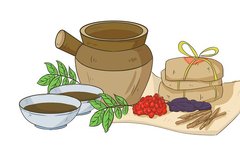Traditional Chinese Medicine (TCM) refers to the traditional medical practices of China, in contrast to Western medicine. Below is a carefully compiled list of the top ten precious medicinal herbs, which we hope will be helpful to you!
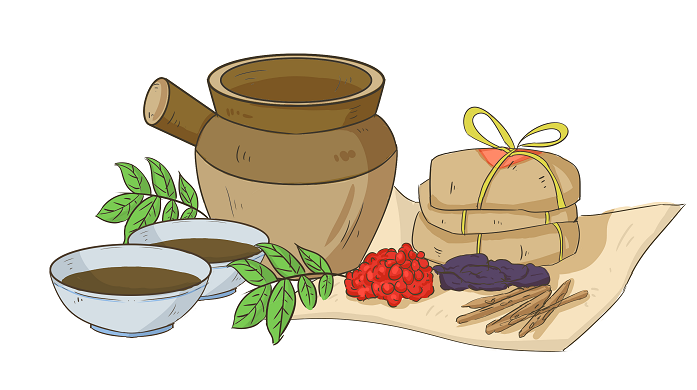
Ranking of the Top Ten Precious Herbs: Lingzhi
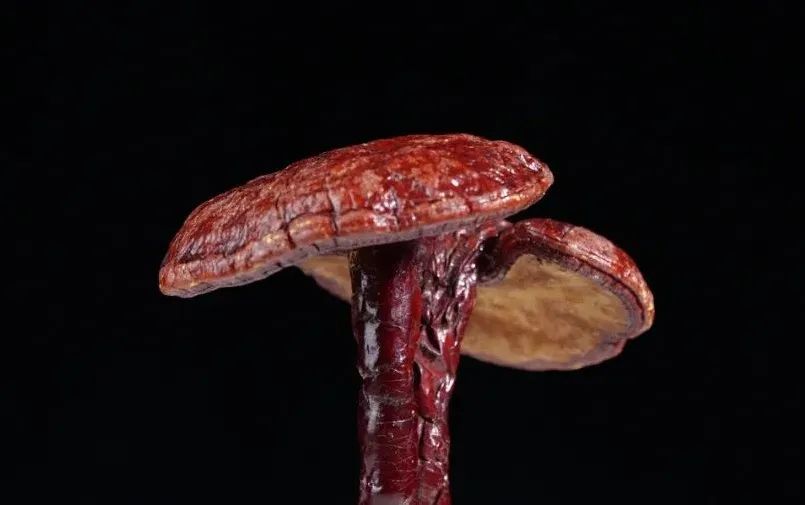
Lingzhi, known scientifically as Ganoderma lucidum (Leyss. ex Fr.) Karst. or Ganoderma sinense Zhao, Xu et Zhang, is the dried fruiting body of the polypore fungus.
【Properties and Channels】 Sweet, neutral. Enters the Heart, Lung, Liver, and Kidney meridians.
【Functions and Indications】 Tonifies Qi and calms the spirit, stops cough and relieves asthma. Used for restlessness, insomnia, palpitations, lung deficiency cough and asthma, fatigue, and loss of appetite.
【Dosage】 6-12g.
Ginseng
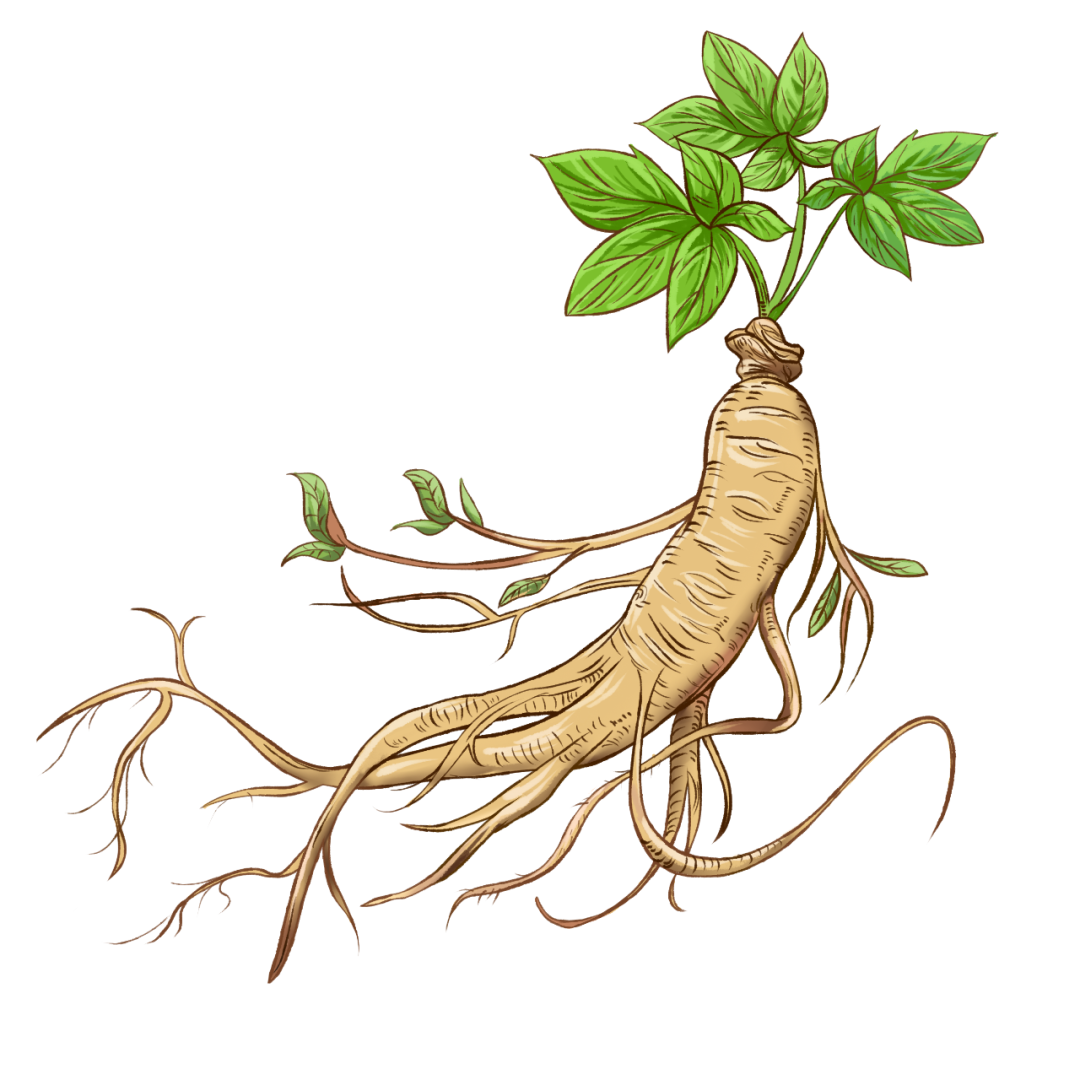 Ginseng is the dried root and rhizome of the plant Panax ginseng C.A. Mey. It is harvested in the autumn, cleaned, and then dried. Cultivated ginseng is commonly referred to as “garden ginseng”; wild ginseng that grows naturally in forests is called “mountain ginseng”.
Ginseng is the dried root and rhizome of the plant Panax ginseng C.A. Mey. It is harvested in the autumn, cleaned, and then dried. Cultivated ginseng is commonly referred to as “garden ginseng”; wild ginseng that grows naturally in forests is called “mountain ginseng”.
【Properties and Channels】 Sweet, slightly bitter, slightly warm. Enters the Spleen, Lung, Heart, and Kidney meridians.
【Functions and Indications】 Greatly tonifies Yuan Qi, restores pulse, strengthens the Spleen and Lung, generates fluids and nourishes blood, calms the spirit and enhances intelligence. Used for deficiency leading to collapse, cold limbs, weak pulse, Spleen deficiency with poor appetite, Lung deficiency with cough and asthma, fluid damage with thirst, internal heat with thirst, Qi and blood deficiency, prolonged illness with weakness, palpitations, insomnia, impotence, and cold uterus.
【Dosage】 3-9g, can be decocted separately; can also be powdered and taken, 2g at a time, twice a day.
【Caution】 Should not be used with Li Lu or Wu Ling Zhi.
Ambergris
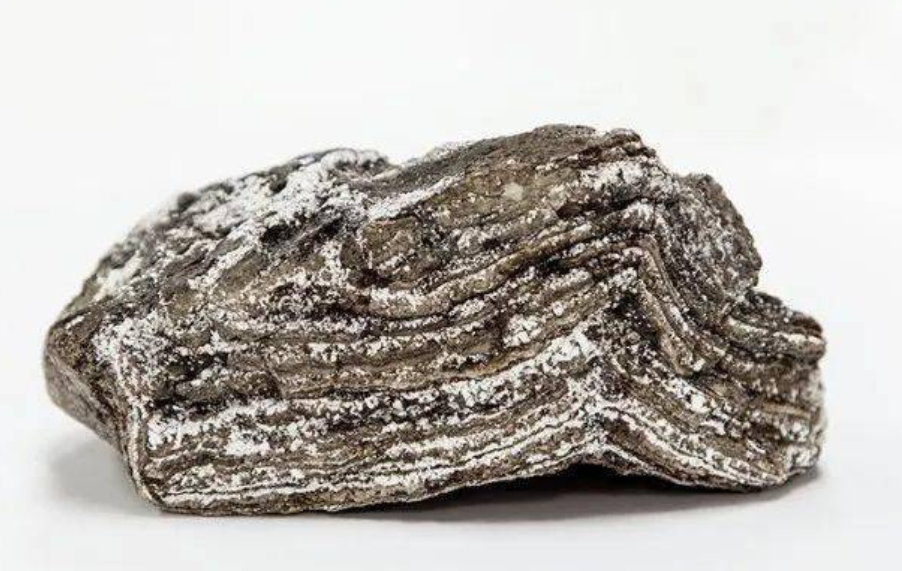
Ambergris, also known as dragon’s belly fragrance (in the West referred to as “gray amber”), is a solid, waxy, combustible substance that is gray or black in color, with a unique sweet and earthy aroma (similar to isopropanol). Ambergris is essentially a dried secretion from the intestines of the sperm whale, which some whales expel and others excrete. The ambergris that enters the sea is initially dark gray, but gradually turns gray, light gray, and finally white due to the action of seawater. Historically, it has been primarily used as a fixative in perfumes.
【Properties and Channels】 Sweet and sour, with a fishy odor.① “Study of Medicinal Properties”: Sweet taste, fishy odor, astringent nature.② “Compendium of Materia Medica”: Fishy odor, slightly sour and salty taste, non-toxic.
【Functions and Indications】 Promotes Qi and invigorates blood, disperses masses and alleviates pain, promotes urination and relieves strangury. Treats cough, asthma, Qi stagnation, abdominal pain, and gonorrhea.
Cordyceps
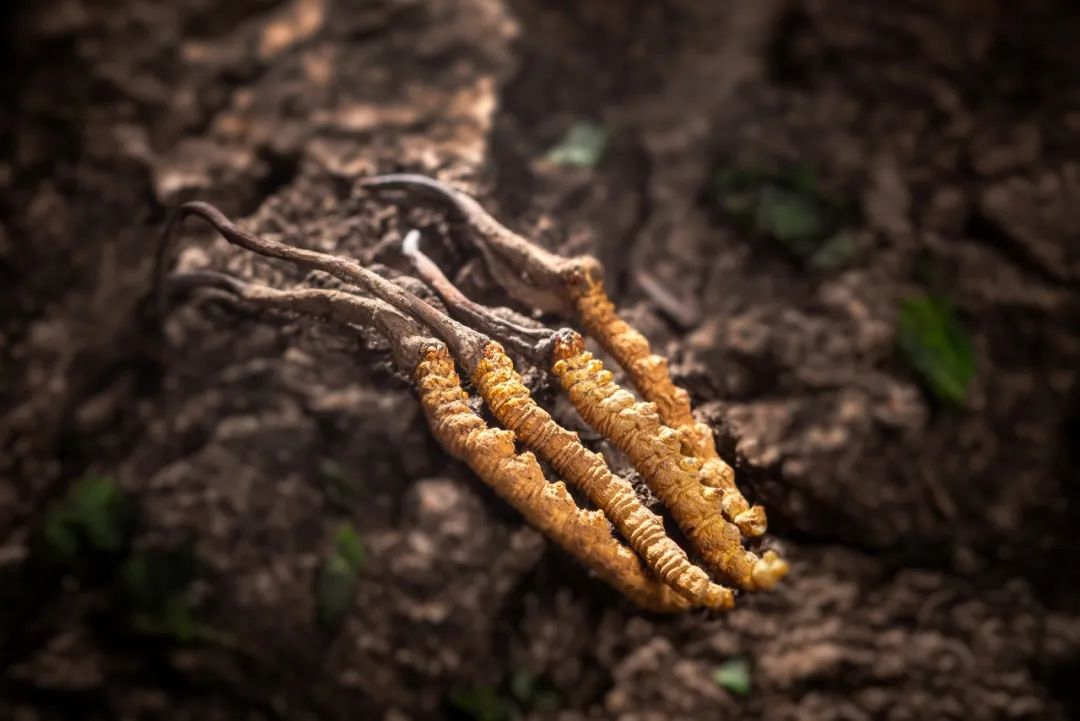
Cordyceps, also known as winter worm summer grass, is a complex of the fungus Ophiocordyceps sinensis that parasitizes the larvae of moths. It is a traditional precious tonic herb, ranked alongside natural ginseng and deer antler as one of the three major tonics. It has a mild medicinal property and can be consumed year-round, suitable for the elderly, children, the sick, the weak, and those with deficiencies, offering broader medicinal value than other types of tonics.
【Properties and Channels】 Sweet, neutral. Enters the Lung and Kidney meridians.
【Functions and Indications】 Tonifies the Kidney and benefits the Lung, stops bleeding and resolves phlegm. Used for Kidney deficiency with sperm deficiency, impotence, lower back and knee pain, chronic cough with asthma, and hemoptysis.
【Dosage】 3-9g.
Tianshan Snow Lotus
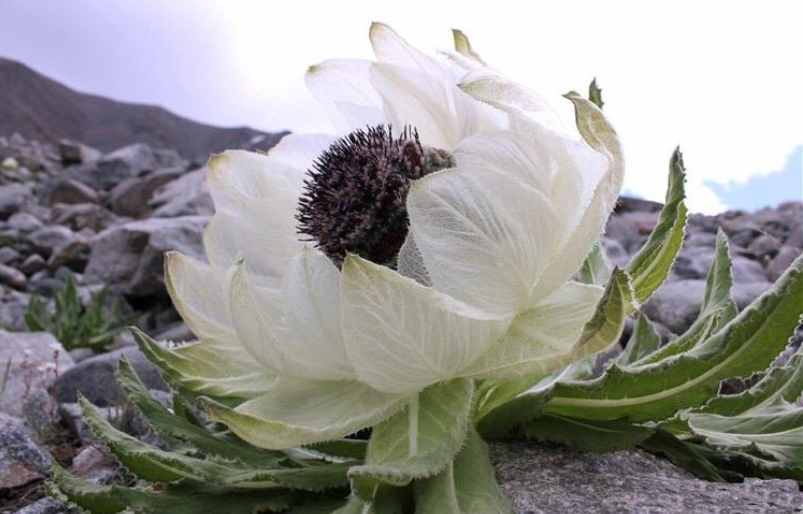
Used by the Uyghur people. It is the dried aerial parts of the plant Saussurea involucrata.【Properties】 Uyghur medicine: nature, secondary damp-heat. TCM: slightly bitter, warm.
【Functions and Indications】 Uyghur medicine: Tonifies the Kidney, invigorates blood, strengthens tendons and bones, nourishes nerves, and regulates abnormal body fluids. Used for rheumatoid arthritis, joint pain, cold cough, cold pain in the Kidney and lower abdomen, and excessive leukorrhea.
TCM: Warms the Kidney and assists Yang, dispels wind and overcomes dampness, promotes circulation and invigorates blood. Used for wind-cold-damp bi syndrome, rheumatoid arthritis, cold pain in the lower abdomen, and irregular menstruation.
【Dosage】 3-6g, decocted in water or soaked in wine. External use as needed.
He Shou Wu (Processed)
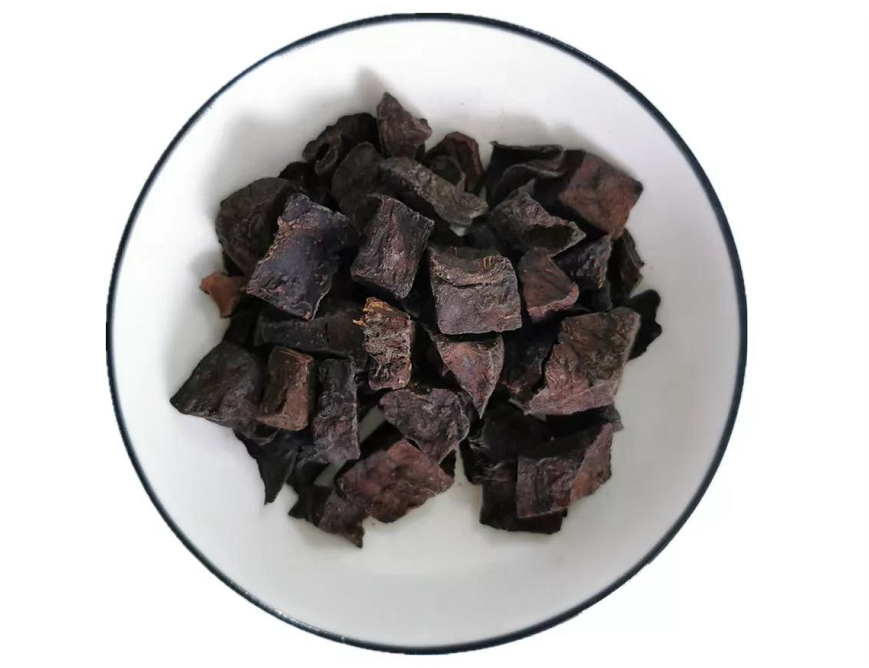
Processed He Shou Wu is a processed product of the tuber of the plant Fallopia multiflora. The Tang dynasty scholar Li Ao wrote “The Legend of He Shou Wu”. Originally, it was a person’s name, and in the “Compendium of Materia Medica”, the original name “Ye Jiao Teng” was changed to “He Shou Wu”.He Shou Wu has raw and processed forms; the processed form is used for treating premature graying of hair. Processed He Shou Wu can darken hair, while raw He Shou Wu can cause diarrhea.
【Properties and Channels】 Bitter, sweet, astringent, slightly warm. Enters the Liver, Heart, and Kidney meridians.
【Functions and Indications】 Nourishes the Liver and Kidney, benefits essence and blood, darkens hair, strengthens tendons and bones, and resolves turbidity and lowers lipids. Used for blood deficiency with yellowing, dizziness, tinnitus, premature graying of hair, weakness in the lower back and knees, numbness in the limbs, uterine bleeding, leukorrhea, and hyperlipidemia.
【Dosage】 6-12g.
Differences in Efficacy between He Shou Wu and Processed He Shou Wu
He Shou Wu is warm in nature, with a bitter, sweet, and astringent taste. It has detoxifying, abscess-dispelling, and laxative properties. Used for scrofula, carbuncles, wind rash, and constipation due to dryness.
Processed He Shou Wu is bitter, sweet, astringent, and slightly warm. It enters the Liver, Heart, and Kidney meridians. It has the functions of nourishing the Liver and Kidney, benefiting essence and blood, darkening hair, and strengthening tendons and bones, used for blood deficiency with yellowing, dizziness, tinnitus, premature graying of hair, weakness in the lower back and knees, numbness in the limbs, uterine bleeding, leukorrhea, and hyperlipidemia.
Deer Antler
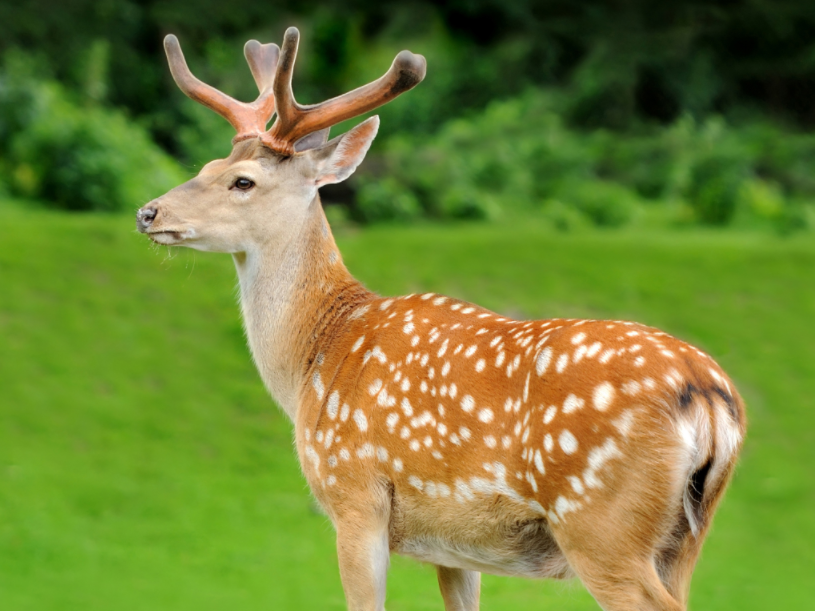
Deer antler is the immature antlers of male deer from the Cervidae family, specifically Cervus nippon Temminck or Cervus elaphus Linnaeus. The former is commonly referred to as “flower deer antler”, while the latter is called “male deer antler”. It is used as a tonic and is effective for weakness and neurasthenia. This product is a commonly used TCM herb, classified as a medium-grade herb in the “Shennong’s Classic of Materia Medica”. Currently, there are many varieties and specifications available on the market, categorized into flower deer antler and male deer antler based on the original animal, and into cut antler and sawed antler based on the harvesting method.
【Properties and Channels】 Sweet, salty, warm. Enters the Kidney and Liver meridians.
【Functions and Indications】 Tonifies Kidney Yang, benefits essence and blood, strengthens tendons and bones, regulates the Chong and Ren channels, and expels toxins. Used for Kidney Yang deficiency, essence and blood deficiency, impotence, cold uterus leading to infertility, emaciation, fatigue, aversion to cold, dizziness, tinnitus, deafness, cold pain in the lower back, numbness, uterine bleeding, and yin sores that do not heal.
【Dosage】 1-2g, powdered and taken.
Musk
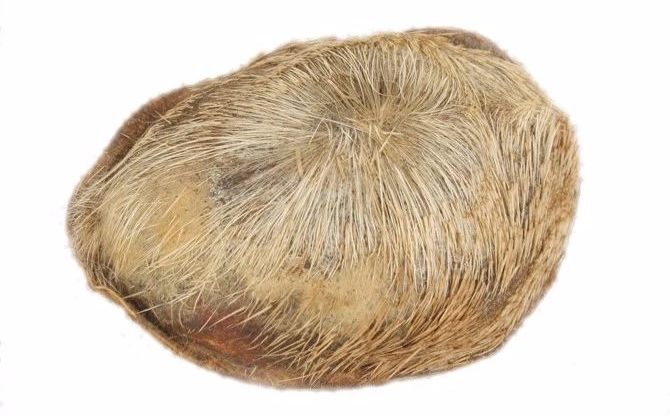
Musk is a precious medicinal material unique to China, derived from the dried secretion of the mature male musk deer, specifically Moschus berezovskii Flerov, Moschus sifanicus Przewalski, or Moschus moschiferus Linnaeus. Wild musk is typically harvested in winter to early spring; after hunting, the musk pouch is cut and dried, commonly referred to as “hairy musk”; when the pouch is opened and the pouch shell is removed, it is called “musk core”. Domestic musk is directly extracted from the musk pouch, dried in the shade or using a drying device. It is a high-grade fragrance; even a small amount placed indoors can fill the room with a pleasant aroma, with a unique scent that lasts long. Musk not only has a pleasant fragrance but also has a long-lasting scent. Musk is a secretion from the glandular sac located between the navel and reproductive organs of male musk deer, which, when dried, appears granular or blocky, has a special aroma, and a bitter taste. It can be made into perfume or used as medicine. It is a central nervous system stimulant and can relieve pain and reduce swelling when applied externally. Commonly referred to as “musk”. It is classified as a superior herb in “Shennong’s Classic of Materia Medica”.
【Properties and Channels】 Pungent, warm. Enters the Heart and Spleen meridians.
【Functions and Indications】 Opens the orifices and awakens the spirit, invigorates blood and promotes circulation, reduces swelling and alleviates pain. Used for febrile diseases with delirium, stroke with phlegm obstruction, Qi stagnation with sudden loss of consciousness, evil qi causing fainting, menstrual disorders, abdominal masses, difficult labor, stillbirth, chest obstruction with heart pain, abdominal pain, traumatic injuries, numbness, abscesses, and lymphadenitis, and sore throat.
【Dosage】 0.03-0.1g, often used in pills or powders. External use as needed.
【Caution】 Not suitable for pregnant women.
Seahorse
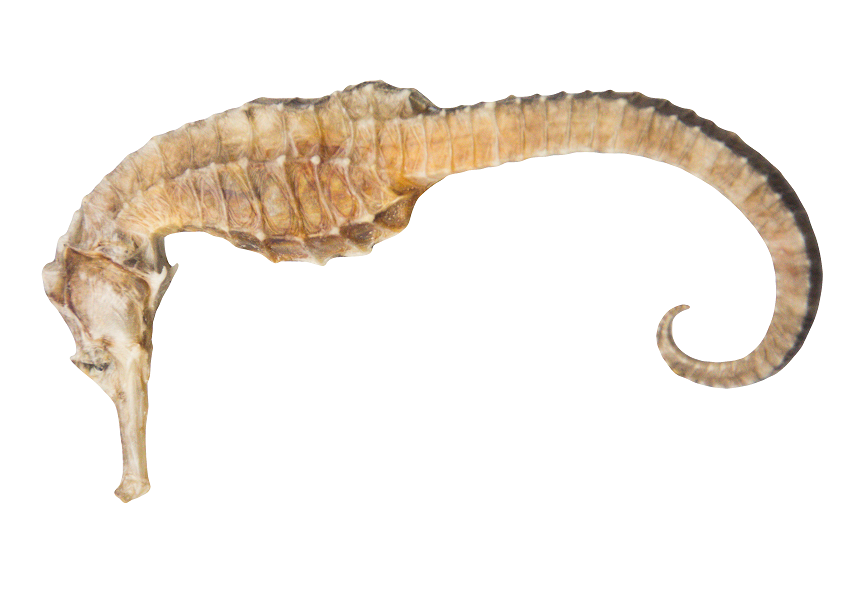
Seahorse refers to the dried bodies of various species in the family Syngnathidae, including Hippocampus kelloggi, Hippocampus histrix, Hippocampus kuda, and Hippocampus trimaculatus. They are harvested in summer and autumn, cleaned, and dried; or the skin and internal organs are removed and then dried. Seahorses are small fish found in shallow coastal waters, named for their horse-like heads. They are a precious medicinal herb with high economic value, known for their ability to strengthen the body, tonify the Kidney and Yang, relax tendons and joints, reduce inflammation and pain, calm the spirit, and relieve cough and asthma. They have been favored since ancient times, especially among men. Therefore, there is a high demand for seahorses in both domestic and international markets.
【Properties and Channels】 Sweet, salty, warm. Enters the Liver and Kidney meridians.
【Functions and Indications】 Warms the Kidney and strengthens Yang, disperses masses and reduces swelling. Used for impotence, enuresis, Kidney deficiency with asthma, abdominal masses, and external treatment for abscesses and sores.
【Dosage】 3-9g. External use as needed, powdered and applied to the affected area.
Bird’s Nest
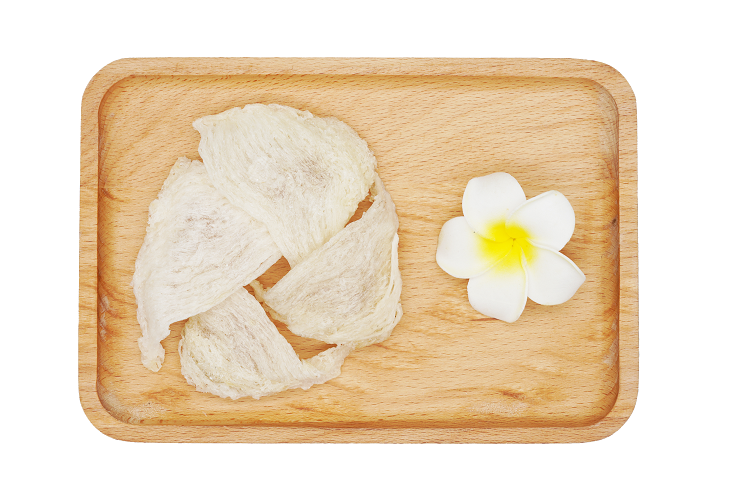
Bird’s nest refers to the nests made from the saliva of certain species of swifts and edible-nest swiftlets in the family Apodidae. Also known as swallow’s nest, it can be categorized into “house nests” and “cave nests” based on where they are built. Cave nests vary in color due to mineral influences, resulting in white, yellow, and red varieties, while house nests are only ivory white. Bird’s nest has been consumed as a traditional delicacy in China since the Ming dynasty. The so-called “blood nest” on the market is said to be made from artificially farmed house swifts using a “bird droppings smoking method”.
【Historical Medical Texts】
In the book “New Theory of Materia Medica”: Bird’s nest treats excessive lung fire, cough with phlegm, Qi deficiency with cough and asthma, and blood loss due to injury.
In “Revised Materia Medica”: Bird’s nest greatly tonifies Yuan Qi and moistens the Lung and nourishes Yin. Used for deficiency cough, hemoptysis, and to return fire to the source, moistening the intestines and stimulating appetite.
In “New Materia Medica”: Bird’s nest greatly nourishes Lung Yin, transforms phlegm and stops cough, and is a holy medicine for regulating deficiency and consumption. It can treat all diseases caused by Lung deficiency that cannot clear and descend.
In “Essentials of Medicine”: Sweet can harmonize the Spleen, nourish the Lung, and soothe the Liver; salty can nourish the Heart, invigorate blood, drain the Kidney, and clear heat; its adhesive nature can especially nourish dryness and transform phlegm. Additionally, as it is made from the saliva of swifts, it is believed to greatly nourish deficiency and fatigue.
In “Materia Medica Compendium”: Bird’s nest can promote the generation of Jin and Shui, nourishing the Kidney Qi and stabilizing the Lung Qi, making it one of the most gentle and beneficial foods. Unfortunately, it is rarely included in herbal texts and seldom used in prescriptions. Nowadays, it is used to nourish deficiency and cough with red phlegm, often cooked with rock sugar, and is usually effective. However, it is only suitable for those with mild conditions; if Yin fire is strong, blood is counterflowing, it may not be effective due to its gentle nature.
In “Essentials of Materia Medica”: If the heart is troubled, fire will rise, and if the Kidney is fatigued, water will be depleted. If there is stagnation, the fire will rise, leading to symptoms such as five hearts burning, and Qi counterflowing, resulting in cough, hemoptysis, asthma, and phlegm. If the Kidney Yin is damaged, it leads to symptoms such as bone steaming and insomnia. At this time, even if one uses heavy Yin tonics, it may not be effective. Therefore, it is essential to consume gentle and nourishing foods like bird’s nest to nourish Yin and stabilize Yang, preventing excessive fire from consuming Qi, which is different from the heavy tonics that harm the Spleen and Stomach.

